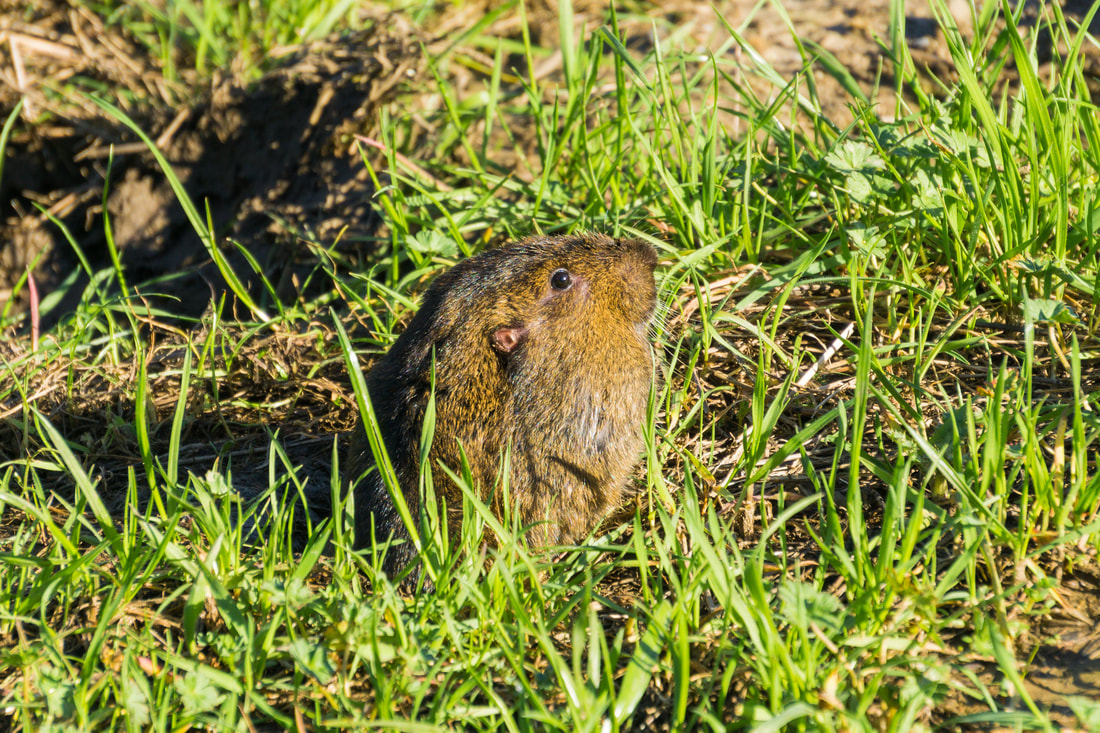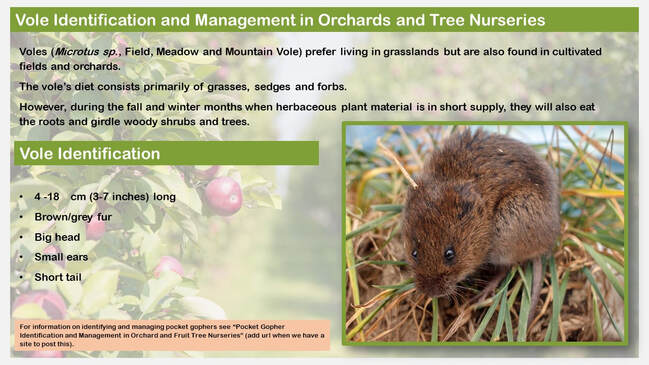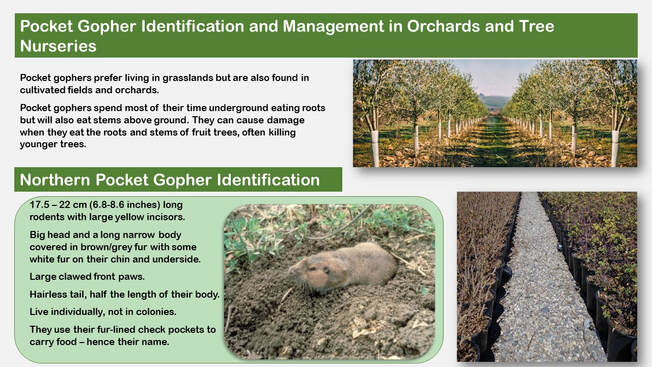Voles and pocket gophers can cause considerable damage to orchards and tree nurseries.
The outreach sheets below are intended to help with identifying what type of rodent is damaging your plants and how to most effectively manage these rodents using an Integrated Pest Management (IPM) approach. The goal of an IPM approach is to consider the least severe intervention and the most effective method given the specific circumstances, such as removing food sources and modifying the habitat making it less attractive to rodents. Keeping in mind, long term sustainable control can only be achieved by reducing the rodent carrying capacity of the environment.
Rodenticides should only be used as a last resort to control rodents in a targeted an efficient manner. Long term rodenticide baiting is not the solution to rodent control and increases the risk of non-target wildlife being at risk of eating the bait directly or being secondary poisoned by rodenticide-laden prey. Rodenticide poisoning of raptors is an ongoing issue in southern British Columbia.
The outreach sheets below are intended to help with identifying what type of rodent is damaging your plants and how to most effectively manage these rodents using an Integrated Pest Management (IPM) approach. The goal of an IPM approach is to consider the least severe intervention and the most effective method given the specific circumstances, such as removing food sources and modifying the habitat making it less attractive to rodents. Keeping in mind, long term sustainable control can only be achieved by reducing the rodent carrying capacity of the environment.
Rodenticides should only be used as a last resort to control rodents in a targeted an efficient manner. Long term rodenticide baiting is not the solution to rodent control and increases the risk of non-target wildlife being at risk of eating the bait directly or being secondary poisoned by rodenticide-laden prey. Rodenticide poisoning of raptors is an ongoing issue in southern British Columbia.


